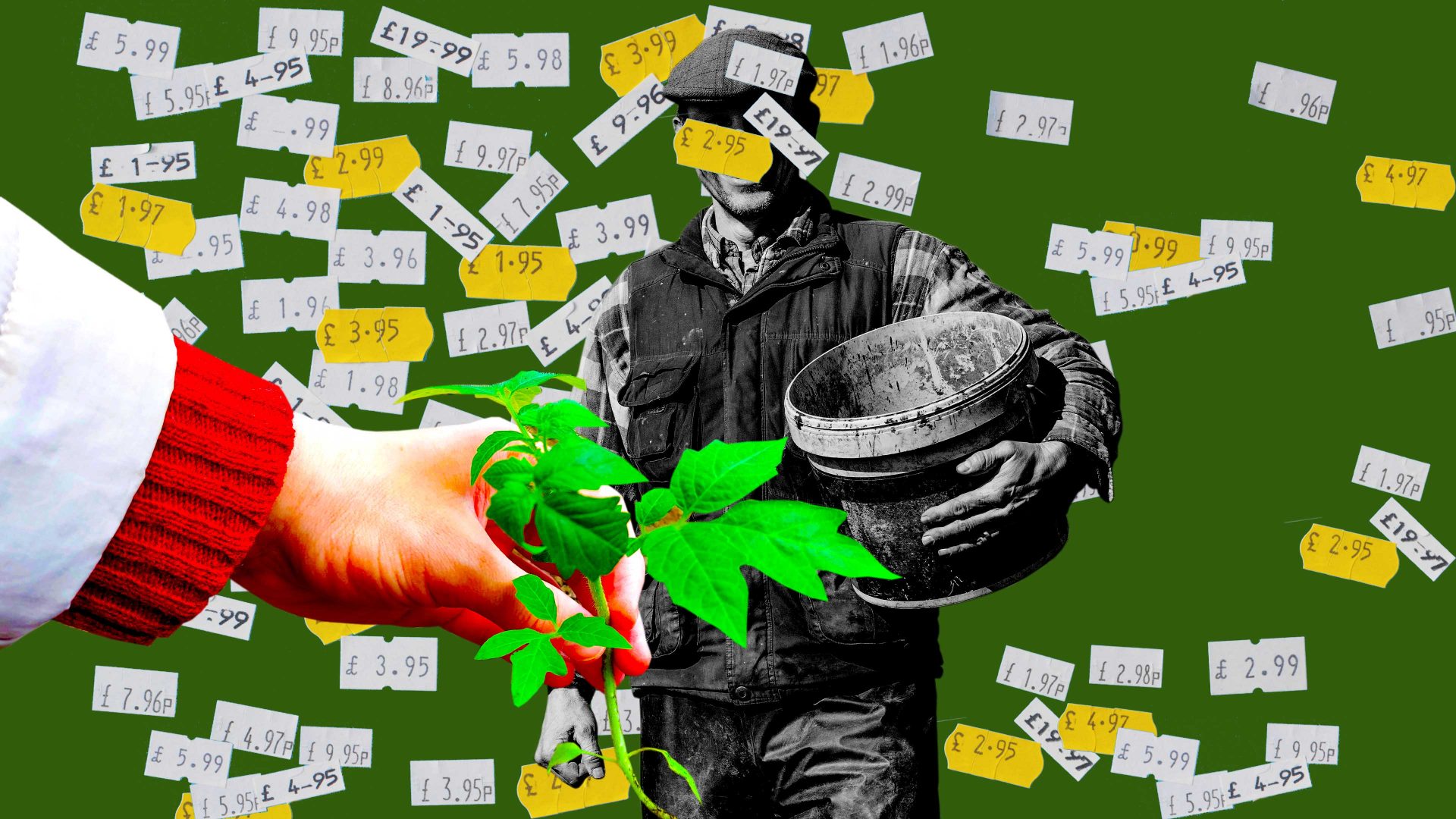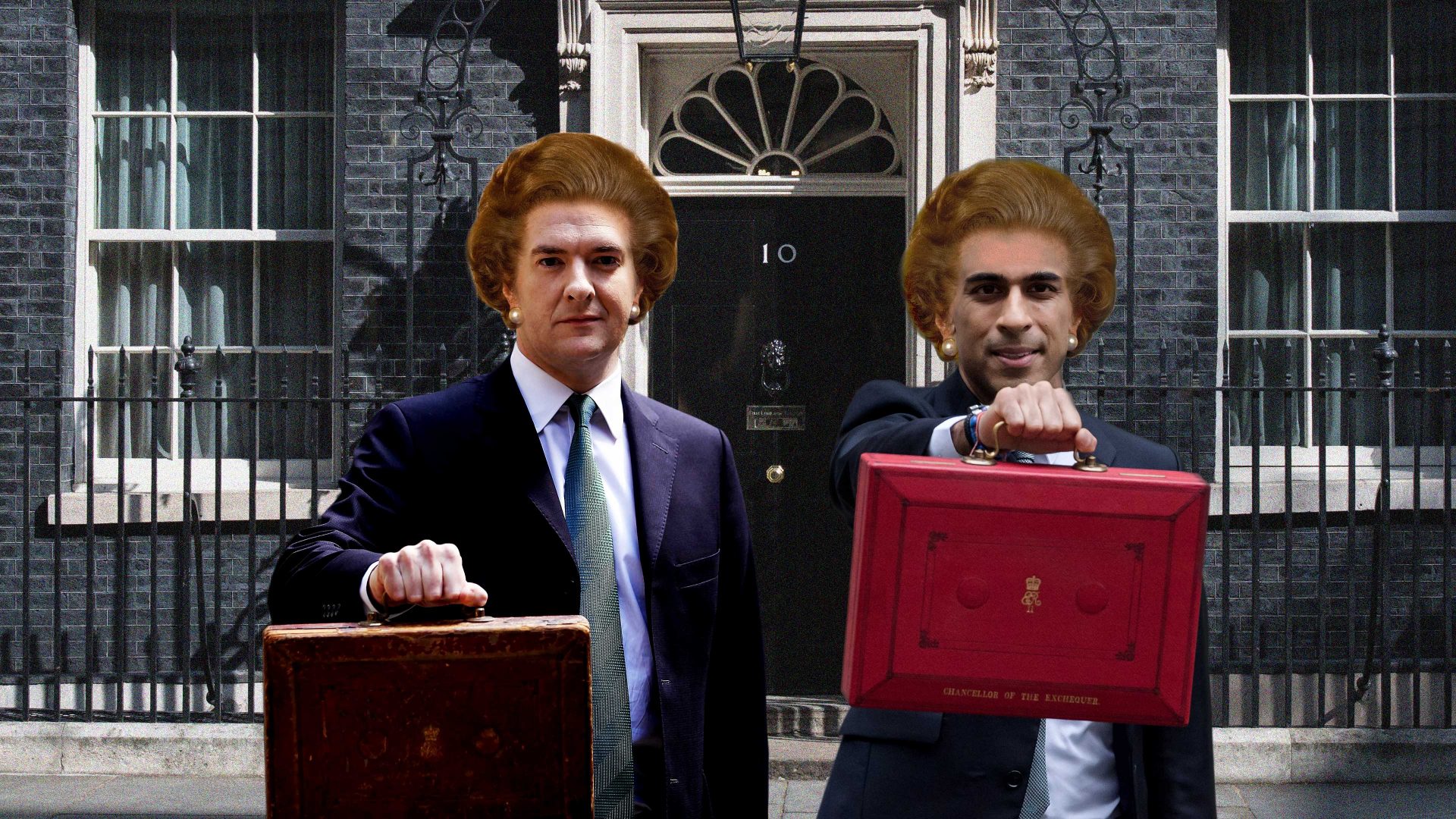When I agreed to serve a third term as president of the National Farmers’ Union I naively thought: ‘Brexit has happened, the Covid pandemic is settling down into a new normal and two more years leading the NFU will allow me to finish the job.’ How very wrong I was: the atrocities being carried out in Ukraine are not only horrific for its people and farmers of Ukraine, but the situation poses one of the most challenging conversations to date for how we feed a growing world population.
I’m speaking regularly to my opposite numbers: the Ukrainian Agrarian Forum. Life as a farmer in Ukraine is currently incomparable to the one that I lead farming in the UK. Many of their fields have been mined, crops destroyed, there’s a shortage of veterinary medicines, seeds and herbicides, and fuel distribution is still fraught with difficulties.
Added to this, many of the men have gone to fight. As they head towards harvest the challenges faced are beyond any of our comprehension.
The global challenges are primarily driven by Ukraine no longer being able to play its part in global food production. As a country they were feeding over 400 million people. Meanwhile, the world is also waking up to the fact that we have placed far too much reliance on Russia to supply our energy and the production of fertiliser.
I farm near Salisbury in south Wiltshire and from my farm I can look north and see Salisbury Cathedral, now recently and sadly more widely known for the Russian attack and attempted murder of Sergei and Yulia Skripal in March 2018. Salisbury remains a stark reminder that the Putin regime holds no regard for life anywhere in the world.
The NFU has been around since 1908 and my predecessors led the union through two world wars, and crippling disease outbreaks like foot-and-mouth. Today I represent some 47,000 farming and growing businesses across the UK.
Much as our British landscape is enormously diverse, as are the farmers who farm the land and produce roughly 60% of our food. We have a maritime climate and are incredibly fortunate to be able to grow a wide variety of different crops, vegetables and fruit. Our temperate climate allows us to grow grass which means that our beef, sheep and dairy production is not so reliant on grain in the same way as other countries are.
I always knew that leaving the EU would mean big changes for farming and the food we eat. I’d hoped the pandemic would change political thinking, that the empty supermarket shelves of that first lockdown in March 2020 would finally be the wake-up call our political leaders needed to make food security a national priority.
Our prime minister continually calls for greater levels of optimism. Yet, despite leaving the EU over two years ago there remains much to conclude on the future of our trading relationship. No surprises that it’s food standards which is the problem area; it’s always the first and last chapter to conclude any trade deal. For the fourth time, government has not delivered its plans for food import checks and the Northern Ireland Protocol remains unresolved.
Every time Boris Johnson calls for more optimism, I’m reminded of my headmistress at secondary school calling for pupils to maintain “a positive mental attitude” no matter what life might throw at us, my point being it’s having a comprehensive strategy that resolves complex issues – optimism alone might read well in a press release but it won’t resolve the problem.
The Conservative government has stood by its 2019 manifesto commitment to legislate on targets for nature, biodiversity, species and trees. These are incredibly important, but so is the food that we eat and if we can legislate to plant 15,000 hectares of trees every year for 10 years I’m left perplexed as to why we are not legislating on targets to improve our food security. Why would we not want to grow more of what we’re good at?
So, does the war in Ukraine change political priorities? If it doesn’t the UK is sleepwalking into disaster on maintaining food supply. You could argue, and many in government do, that we’re a wealthy nation and can just import our food.
But this is completely missing the point because it’s the developed nations that will need to raise their game to avoid a repeat of the Arab Spring, or worse.
Putin’s game of food insecurity chess is already ahead of us. Russia is the largest producer and exporter of nitrogen fertiliser, which it stopped exporting back in January. Alongside Ukraine the two countries produce 30% of global wheat exports. This is serious for the UK but it’s much more serious for North Africa and the Middle East. North Africa doesn’t have enough grain to get through to the next harvest. Many of the world’s poorest countries rely heavily on The killing fields Ukraine and Russia – Eritrea is 100% reliant on Russia for wheat.
Russia has mined the exit points from Ukraine’s ports, leaving them reliant on train freight. This will never shift any quantity and for the Ukrainian farmers that haven’t already left to fight for their country, the message from the Ukraine government is to focus on feeding the people of Ukraine first.
In effect what Russia has done is expose the world’s reliance on nitrogen, which is a fundamental plant nutrient and most of us farmers apply it. Nitrogen fertiliser is made using the ‘Haber Bosch’ process, which is incredibly gas hungry. As a result, the cost of fertiliser has quadrupled over the last nine months. Nitrogen fertiliser can double yield and it’s well known that four billion people are alive today because of its use.
Farmers in the UK are looking at an extra cost of £744 million to fertilise the UK wheat crop. To put that into context, my farm is a grassland farm, producing beef and lamb. Last year my nitrogen fertiliser bill was £8,750; this year for the same amount I’m looking at a cost of £35,000. Fertiliser costs to produce high-quality grain are higher still and many farmers will be thinking that they’ll revert to spring planting, thereby halving their costs and produce feed wheat that will be sold to the pig, poultry, dairy and livestock sector.
But this is the challenge: to make bread you need high-quality, winter-sown milling wheat. Wheat futures prices hit a record high last August. Nobody knows where the price will get to in 2022/23 but we do know that prices are headed to a place that the world has never experienced before. And therein lies the problem and for farmers, like all businesses – it’s about margins, not prices.
Feeding grains has an essential role to play in pig, poultry and livestock production. Many livestock farmers now are facing triple-digit inflation on their feed costs and in many cases, these farmers are producing food well below the cost of production.
One of the great success stories here in the UK is that our food has become more affordable per income spend in the last 20 years than it has ever been. Statistically, we now spend 8% of our annual income on food.
In the 1970s we spent 30% of our annual income on our food. For those of you, like me, who were growing up then, our dietary choices were dire in comparison to the choices of today. There was no such thing as baby leaf bagged salad or pre-prepared goodies to fling in the microwave when short of time. Added to this, shops were closed on Sunday and most shut at 5pm in the week.
It couldn’t be more different today, we can, quite literally, buy whatever we want, whenever we want it and we’re paying no more for our milk or our strawberries than we were 20 years ago – until now. The UK has the third most affordable food in the world, with the US and Singapore just ahead of us. It is worth noting that the price of food in Australia and New Zealand is quadruple what it is here.
This huge UK success story has only been possible by the continuing evolution of farming. The farming industry has continually innovated and become more and more efficient. Better plant-breeding technologies have helped us increase yield, but with fewer inputs. We have better genetics and health status in our livestock. Currently the average dairy cow in the UK produces double the milk she did 40 years ago.
And today we can grow huge numbers of cucumbers, tomatoes, peppers and aubergines undercover, as well as using hydroponics to grow pea shoots and the like in a controlled atmosphere without soil.
But the current conundrum for our food security is this: who should pay for these unprecedented inflationary costs like fertiliser, fuel, gas, electricity, cardboard and plastic, to name but a few? How many consumers can afford to pay £5.00 for a pack of six tomatoes or 80p for a pear?
At this moment decisions are having to be made in the UK on how much our Christmas dinner might cost. A major retailer said to me last week: “If we pass all the extra cost to the consumer when they buy their turkey, chances are we’ll throw half of them away because people won’t be able to afford them.” If that same retailer decided to absorb the cost of production, it would result in an outlay of £5 million for just five days of sales.
If you’re a farmer, regardless of whether you’re producing a Christmas turkey, free-range eggs, cucumbers, milk or milling wheat, the safest way of managing your business risk right now is to produce less than you would normally and cut out your input costs.
There is no government in the world that wants to see consumers panic buying and creating food shortages – but failure by this government to act could well see double-digit contraction across all sectors, which will mean food shortages.
Will our shiny new trade deals sort the problem? The short answer is no because this is a global problem, added to which, China has had its worst harvest in a decade and is buying up what it can from the world market. Others are profiteering by pausing and reviewing their protein export tariff.
As I’ve said, we have a great climate for growing high-quality sustainable food. Unlike others we’re not reliant on Russian gas and many of the problems I’ve alluded to could be resolved by government intervening in the gas market.
We have a fertiliser plant that is currently mothballed and another running at 60%. Government and retailers urgently need to wrap their arms around food production and give farmers the confidence to keep investing in producing our food.
The world is right to put its foot hard on the throat of the Putin-led Russian regime. The atrocities being committed in Ukraine are beyond comprehension. Putin’s actions will force the world to discuss and decide how we produce sustainable food for everyone, everywhere in the world.
The World Bank has rightly challenged wealthy nations to produce more food – this is essential if we are to avoid shortages of grain for poorer nations, or those that simply don’t have a climate that is capable of growing crops.
The UK and EU are in grave danger of being asleep at the wheel; a global food strategy has never been more needed because high-quality affordable food should be a human right for everyone.
Minette Batters is president of the National Farmers Union



